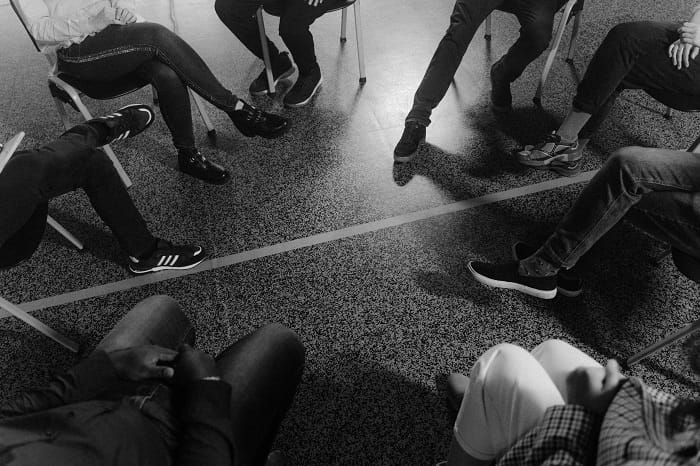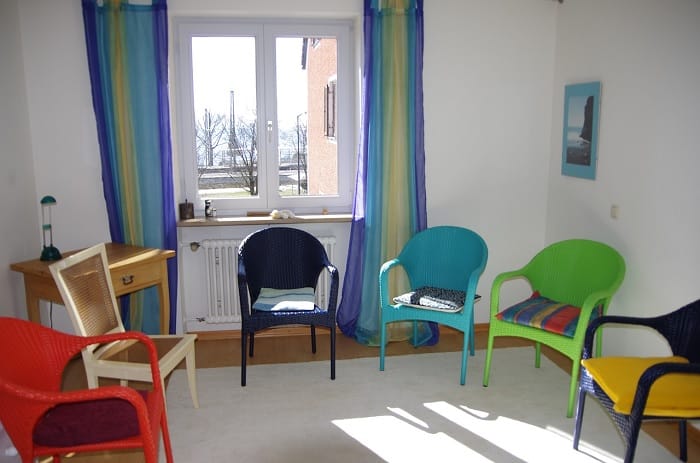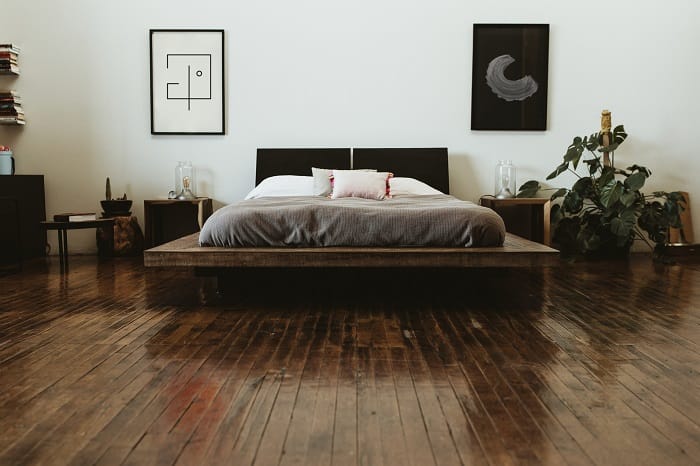Rehab 4 Addiction works with an extensive network of drug and alcohol addiction treatment providers in Norfolk.
When you contact us, we carry out an assessment with you so we may recommend treatment providers in Norfolk.
This is followed up by a more in-depth psychiatric assessment when your drug and alcohol rehab in Norfolk begins.
By the conclusion of the call, you will be much better informed about your various publicly-funded and private treatment options in Norfolk and near Norfolk.
You can assess help and support today both in Norfolk or across the East Anglia region in Great Yarmouth, Bowthorpe, Norwich, Thetford, Halstead, Dereham, Westwick, Wymondham, Chapelfield, Pottergate, Cringleford, Trowse Newton, New Costessey, Fakenham or King’s Lynn.
We offer help for a variety of addictions, not limited to alcohol. You can also get help for addiction to drugs such as cocaine, heroin and other opioids, ketamine, crack cocaine, MDMA, benzodiazepines, prescription drugs, and cannabis. It’s also possible to begin treatment to behavioural addictions, such as gambling addiction.
Call our expert team today on: 0800 140 4690.

In Norfolk, there exist many treatment options for alcohol and drug addiction. These options are available through both statutory and private treatment sources.
Generally, when you seek out treatment through statutory sources in Norfolk or near Norfolk, you typically must wait for around 12 months before treatment becomes available.
This is because of limited funds and the high demand for free services, like on the NHS Seeking out private treatment means you can avoid these waiting lists and begin your treatment immediately.

Unfortunately, there are many damaging myths surrounding rehab. Of these, the most prominent is that clinics are reserved for those who have hit rock bottom.
In the media, rehabilitation centres are falsely presented as a last resort option for those with severe drug and alcohol addictions. It’s this narrative that prevents people in need from seeking help.
However, drug and alcohol addiction is a vast spectrum, and each case is worthy of treatment at a Norfolk drug & alcohol rehab. While inpatient rehab is for anyone struggling with drug and alcohol abuse, it’s also suitable for those who have relapsed after short term abstinence.
Recovery is rarely a linear process, and relapse should not be viewed as a defeat. Even if you have already been through rehab, it might be that additional therapy is needed.
Behavioural intervention methods such as CBT can help strengthen trigger management skills and help you avoid another relapse.
Moreover, the on-site nature of rehab means you’ll be free from substance exposure throughout your residency.
For those exhibiting signs of mental illness alongside drug or alcohol use, a stay in rehab is often crucial to treating both conditions.
Upon arrival, a consultant will assess your situation and may come to a dual diagnosis.
By remaining at rehab for a few weeks or months, you’ll receive extensive psychiatric support via therapy. This also allows you to treat the root cause of your substance dependency.
We support rehab for a range of sustances, including
To learn more about drug and alcohol rehab in Norfolk, call our team on 0800 140 4690

Often mislabeled as a lifestyle choice, Substance Use Disorder (SUD) is in fact a chronic biopsychosocial illness.
As addiction manifests in different ways for different people, it can be difficult to gauge an individual’s severity.
As such, whether you’re seeking professional help for yourself or a loved one, it can be helpful to know which signs to look out for.
The DSM 5 criteria identify the symptoms and diagnostic features of SUD and consists of 10 main points.
This framework is one often utilised by drug and alcohol rehab in Norfolk and near Norfolk to determine the severity of your addiction. The above applies to a variety of addictions, such as cannabis addiction, cocaine addiction, alcohol addiction, opiate addiction and heroin addiction.

In many cases of SUD, an individual will be in a state of denial. This is often regarding the severity of their addiction, and the impact it has on those around them.
While in the throes of their addiction, they may be unwilling to accept the need for drug and alcohol in Norfolk. Their reasoning for this might be that there is no need to worry.
Fortunately, staging an intervention with the help of a specialist is simpler than ever.
Here at Rehab 4 Addiction, we can put you in touch with a professional interventionist, and help your loved one start on their road to recovery. and reaching their recovery goals.
A constructive intervention is a carefully planned process. Oftentimes, loved ones will come together and facilitate heartfelt conversations with the individual battling a drug and alcohol addiction.
However, the responsibility of inspiring treatment shouldn’t fall directly on the affected individuals’ loved ones.
Instead, interventions should include behavioural counsellors or addiction psychiatrists familiar with the treatment options available in Norfolk.
With their expertise, you’ll present a loved one with the opportunity to change before their addiction worsens.
This includes presenting examples of their destructive behaviour, and a pre-arranged treatment program at a drug & alcohol rehab in Norfolk.
One effective model for staging an intervention is the Community Reinforcement and Family Training (CRAFT) approach. In contrast to more traditional methods, CRAFT encourages loved ones to allow someone to experience the consequences of their addiction.
According to addiction specialist Dr. John C.Umhau, The CRAFT method is much more scientific [than old intervention techniques]. It’s based on the idea that you reinforce good behaviour, and you don’t reinforce bad behaviour.
After the Rehab 4 Addiction team has assigned you a CRAFT therapist, the following practices will be encouraged to make sure the intervention runs smoothly and sympathetically.
To learn more about hosting an intervention in Norfolk, call our team on 0800 140 4690

With an expert team at our disposal, Rehab 4 Addiction offers professional guidance at no cost. In doing so, our aim is to simplify the rehab admissions process in Norfolk.
By providing a personalised referral, we’ll connect you with a drug & alcohol rehab in Norfolk or near Norfolk to suit your individual needs. Our priority is to analyze the unique details of each case and adapt the admissions process to suit each client’s situation.
To start building your treatment program, we’ll first organize a free phone consultation. In this crucial phone call, one of our consultant psychiatrists will perform a non-invasive health assessment.
Within just 15-20 minutes, they’ll accurately gauge your mental and physical well being. Additionally, they’ll inquire about any pre-existing conditions, the nature of your addiction, and your history of drug and alcohol abuse.
After you’ve completed the health evaluation, you’ll have the chance to describe your preferences for finding a rehab clinic.
We’ll do our utmost to accommodate these choices- whether you have a particular treatment, budget, or location in mind.
Lastly, your case-workers will finalise your list of recommended clinics and bespoke referrals. Each option presented will honour your individual preferences.
You and your loved ones can take as much time as you need to make an informed decision. However, if the need for treatment is urgent- we can organise a bed for you within 48 hours.
Here at Rehab 4 Addiction, we understand the financial burden that can come with accessing private treatment.
As such, we’ve partnered with treatment providers in Norfolk that work to suit each budget: with many clinics providing bespoke payment plans.

Whether you’re suffering from an opioid, amphetamine, or stimulant use disorder, seeking the help of a rehab clinic will make lifelong recovery goals attainable.
Due to the severity of illicit drug addictions, and their ability to cause severe withdrawal, rehabilitation is crucial.
At a drug & alcohol rehab in Norfolk, patients have access to a wealth of medical and holistic support. Both styles of treatment are vital in conquering the psychological and physical facets of addiction.
To optimise their chances of long-term sobriety, patients often choose to spend between 30-120 days at a specialised rehab clinic. As always, there will be room for manoeuvre depending on your needs.
After a fully supervised medical alcohol detox, you’ll transition to your personalised treatment plan. The contents of this will reflect your personal struggle with addiction, and induce ways to overcome it.
During the alcohol detox, alcohol withdrawal symptoms will be treated. This is also known as alcohol withdrawal syndrome. You can learn more about alcohol withdrawal symptoms here, but these symptoms often include insomnia, nausea and hallucinations known as delirium tremens.
Oftentimes, behavioural intervention such as Cognitive Behavioural Therapy (CBT) is a go-to treatment for drug dependencies. In these sessions, you’ll overcome your addiction through rewiring negative thought patterns.
With the help of a CBT therapist, participants learn to recognize the link between their thoughts, emotions, and actions. This allows you to identify triggers and curate tools to manage them.
In addition, patients at a drug rehab can expect to encounter Holistic Therapies for the development of healthier habits. Designed to treat the patient as a whole, holistic workshops allow you to reignite hobbies, or form new ones.
The activities involved in alternative therapy are powerful relapse prevention tools, as they distract participants from negative thoughts. Examples include yoga, tai chi, art therapy, and meditation.
For more information on drug rehab in Norfolk, call our support team on 0800 140 4690

Below we’ve listed the types of therapy you may be offered during your time at a drug and alcohol rehab in Norfolk.
While CBT implements cognitive change, DBT focuses on managing intense emotions.
Sessions are adapted for those who feel emotions intensely as part of their addiction, and who are emotionally dependent on a substance.
For example: in cases where drugs or alcohol are used in an attempt to heal past trauma, DBT is a powerful tool.
Through regular sessions as part of their treatment plan, patients can learn to heal from past life events, and remove the need to use a substance.
As a form of successful behavioural intervention, the CBT method has witnessed years of success in addiction treatment.
This communicative therapy is based on the idea that addiction is formed through a pattern of self-destructive behaviour.
By rewiring thought patterns over time, patients undertaking CBT learn more about their specific triggers and the underlying cause of their addiction.
MI is a technique based on collaborative discussion between the therapist and patient, where personal goals for a recovery programme are formed and met. This is an evidence-based form of addiction counselling.
Unlike CBT, it aims to resolve ambivalence instead of tackling cognitive patterns.
As the name suggests, MT aims to support the individual through increasing motivation levels and decreasing hesitancy towards treatment.
As such, it’s often used alongside behavioural intervention therapy.
HT differs from psychotherapy as it takes into account the individual as a whole.
Workshops cater towards healing the mind, body, and spirit of each patient by igniting new hobbies and inspiring a healthier lifestyle after rehab.
Firstly, you’ll be asked to form some personal goals concerning health, eating, exercising, artistic pursuits- or anything that you feel could optimize your happiness.
You’ll then be able to partake in a variety of workshops as part of your personalised treatment plan. These include but aren’t limited to: yoga, nutrition classes, art therapy, mindfulness meditation, drama therapy, equine therapy, acupuncture, stress management, Tai Chi, music therapy, or martial arts and sports.
In essence, FBT is comparable to Group Therapy as it involves multiple people coming together and discussing the effects of someone’s addiction.
As suggested by the name, Family Therapy specifically invites someone’s loved ones to come together in a therapeutic setting. These sessions are often conducted on rehab grounds, and led by an experienced FBT psychiatrist.
Family therapy is particularly helpful if you or your loved are in a co-dependent relationship. You can learn more about co-dependency and addiction here.
This style of therapy allows participants to mend relationships that may have been damaged by their substance use disorder.
Over time, the wants and needs of each family member can be addressed, and their communication with loved ones improved.

Otherwise known as co-occurring disorders, a dual diagnosis describes someone who is battling both addiction and a mental health disorder. Such disorders may include anxiety, depression, post-traumatic stress disorder (PTSD), sleep disorders, bipolar disorder and obsessive-compulsive disorder (OCD).
Unfortunately, this is a common occurrence among those with substance use disorder.
According to a recent GOV UK report, a worrying 59% of adults starting treatment for addiction had an accompanying mental health need.
In many of these cases, one disorder will inform the other, and so it is vital they are treated in tandem.
For example, someone might use drugs or alcohol to lessen the symptoms of anxiety or depression. The brief euphoria offered by drug and alcohol miuse provides escapism, however brief.
However, unregulated substance use will only aggravate a pre-existing condition or even cause the formation of a new one. Oftentimes, regular alcohol use causes a long-term decrease in serotonin, and can therefore cause depressive episodes.
Fortunately, at a drug & alcohol rehab in Norfolk or near Norfolk, an addiction psychiatrist will be on hand to effectively treat these co-occurring disorders.
They’ll ascertain whether mental health issues are pre-existing or substance-induced, and implement the correct forms of therapy for each.
To learn more about how Norfolk rehabs can support your mental health, talk to us today on 0800 140 4690

Below we’ve listed a few common alternatives to inpatient rehab.
Therapeutic communities are often cited as being instrumental in reaching you long-term addiction recovery goals. Both Alcoholics Anonymous (AA), Narcotics Anonymous (NA) and Cocaine Anonymous groups are easily accessible for those living in Norfolk, and will readily open sessions to those in need.
By attending these sessions, you’ll have access to a supportive group of peers who utilize their own form of 12 step recovery.
You can learn more about the twelve-step programme here.
Each step revolves around a particular trait thought to enhance recovery- such as forgiveness, honesty, and acceptance to name a few.
Comprising a global community of those trying to overcome addiction, SMART offers a range of free online and in-person support groups.
Among the group, leaders are volunteers who have been through recovery themselves and reaped the rewards of SMART’S sessions.
Workshops encourage participants to design and implement their own recovery programme plans and complete them with the help of loved ones, SMART therapists, and peers.
While detoxing at home isn’t advisable for those with severe addictions, it can be a viable option for those with mild substance dependency.
For example, those who consume less than 30 units of alcohol per day.
The cost of home detox is far lower than undergoing an inpatient program. As such, many people use the money saved on a detox to fund further rehab treatment programmes.
Initially, you’ll be assessed by an addiction psychiatrist who can prescribe anti-withdrawal medication such as Librium if you meet the severity criteria.
Your personalised medication will then be sent out via post.
Additionally, you’ll receive daily check-ins from your assigned psychiatrist, with whom you can discuss your recovery goals in a non-judgemental space.
Home detox is available both for alcohol detoxification and drug detoxification for drugs such as opioids.

For those who can competently take care of themselves throughout treatment programmes for addiction, outpatient care is an excellent option. This is suitable particularly when an alcohol detox or drug detox is not necessary.
A full psychiatric assessment is carried out to determine your suitability for outpatient treatment, particularly in regard to home detoxification.
It offers both flexibility and freedom for those who are high-functioning enough to attend appointments, and who don’t require medical care.
In these programs, participants will travel to a local drug & alcohol rehab in Norfolk for therapy sessions, and return home following their appointment.
As such, outpatient care is favoured by those juggling work or family commitments.
Typically, sessions will alternate between group and individual therapy. This allows participants to uncover the root cause of their addiction in behavioural therapy while reaping the rewards of community healing.
Call our expert team today on: 0800 140 4690.

You may choose to undertake your treatment at home via an outpatient clinic, or by instead on an ‘inpatient’ basis via a residential treatment clinic.
Residential clinics require you to move into the centre whilst you undergo your treatment programmes. This means you are removed from ‘addiction triggers’ that might otherwise derail your treatment recovery programme.
In contrast, receiving treatment through an outpatient clinic means you are exposed to all the ‘bad influences’ that encourage you to relapse.
Private residential rehab centres in Norfolk offer you 24-hours access to their facilities.
You can typically begin your residential rehab journey within as little as an hour following your initial telephone assessment, depending on the availability of a medical doctor.
Modern rehabs in Norfolk offer evidence-based treatments. Medicated detox follows NICE Guidelines.
These treatments include cognitive behavioural therapy, dialectical behavioural therapy and modern psychotherapy.

Private rehab usually requires a commitment in terms of time and money. You should expect to pay around £2400 for a detoxification programme, and around £4999 for a full residential rehabilitation programme.
It is also possible to undergo a home detox at your Norfolk home. This is typically much cheaper than undergoing a treatment at a residential drug and alcohol rehab in Norfolk. The cost of a home detox is roughly £1500.
Many drug and alcohol rehabs in Norfolk also accept payment via private health insurance, and all major insurers such as Bupa and AXA are accept.
Lastly, it’s also worth noting that you can access private drug and alcohol rehab in Norfolk. Many council-funded providers will require you to undertake outpatient treatment first, and there can be a lengthy waiting period before residential/inpatient drug and alcohol rehab in Norfolk is offered.
Below, we list a number of the National Health Service (NHS) and council-funded treatment providers in Norfolk:
Telephone: 0160 366 0070
Address: 5-7 St Vedast St, Norwich NR1 1BT
Telephone: 01603 514096
Address: Adobe House, 5 Barton Way, Norwich NR1 1DL
Website: https://www.changegrowlive.org/alcohol-drug-behaviour-change-norfolk/online-support
Website: https://www.heron.nhs.uk/ (Web site only)
Telephone: 01493 331524
Address: 51 St Nicholas Rd, Great Yarmouth NR30 1NR
Website: https://www.herringhousetrust.org.uk/
Telephone: 01603 626123
Address: 70-80 Oak St, Norwich NR3 3AQ
Website: https://www.matthewproject.org/
As well as the above, you can also get in touch with national charities such as Mind, Samaritans in Norwich and Rethink Mental Health in Great Yarmouth.

High-quality rehab treatment offers you a medically assisted detoxification programme. This means you will be closely monitored and medicated during the first tentative days of your treatment programme.
During this time, you will likely experience mild to severe withdrawal symptoms. Fortunately, the clinical team will be on hand to ensure these symptoms are carefully managed and reduced over the course of your rehabilitation programme.
Each of our partner rehab centres in Norfolk is (Care Quality Commission) CQC inspected and accredited. We may issue individual CQC reports to you upon request.
These reports are also available online for free via CQC’s website. We also carry out our own due diligence when recommending individual clinics in Norfolk.
This ensures all of our partner rehab clinics meet our own high professional standards when it comes to the provision of professional drug and alcohol treatment.
Once rehab completes, you will then have access to 12 months of aftercare sessions. Aftercare helps you avoid relapse and provides an essential stepping stone to long-term sober living.
Call our expert team today on: 0800 140 4690.

For more information on how to access suitable addiction treatment in Norfolk, contact us today on 0800 140 4690.
When you call, we shall explain your various treatment options in Norfolk – treatment that’s suitable for various types of drug addiction and alcohol abuse. We have helped thousands of people succeed in their recovery goals and we are confident that we can help you too.
Rehab 4 Addiction officers a range of addiction treatments in Norfolk, including Norwich, Great Yarmouth and Kings Lynn.
[1] DSM 5 Criteria for Substance Use Disorders
DSM 5 Criteria for Substance Use Disorders (verywellmind.com)
[2] What Is the CRAFT Approach to Substance Abuse Intervention?
The CRAFT Approach to Substance Abuse Intervention (verywellmind.com)
[3] GOV.UK 2019-2020 Report: Adult substance misuse treatment statistics
Adult substance misuse treatment statistics 2019 to 2020: report – GOV.UK (www.gov.uk)
[4] SMART Recovery
Self-Help Addiction Recovery Program | Addiction Support Groups (smartrecovery.org)
 Quick Links for Menopause and Mental Health Statistics What is Perimenopause? What are the Symptoms of Menopause? Menopause and Mental Health Conditions How Can Menopause Affect My Emotional and Mental Health? Suicide Rates Are Higher in the Menopause Transition Menopause and the Risk of Addiction Physical Changes and Impacts of Menopause Health Ch .... Read More
Quick Links for Menopause and Mental Health Statistics What is Perimenopause? What are the Symptoms of Menopause? Menopause and Mental Health Conditions How Can Menopause Affect My Emotional and Mental Health? Suicide Rates Are Higher in the Menopause Transition Menopause and the Risk of Addiction Physical Changes and Impacts of Menopause Health Ch .... Read More
 With the London Marathon 2024 a week away, if you’re training you might be feeling more motivated than ever. It’s clear that running and completing marathons is a great way to keep fit and comes with plenty of physical benefits. Completing a marathon can also be an unforgettable experience. But it’s also proven to affect [… .... Read More
With the London Marathon 2024 a week away, if you’re training you might be feeling more motivated than ever. It’s clear that running and completing marathons is a great way to keep fit and comes with plenty of physical benefits. Completing a marathon can also be an unforgettable experience. But it’s also proven to affect [… .... Read More